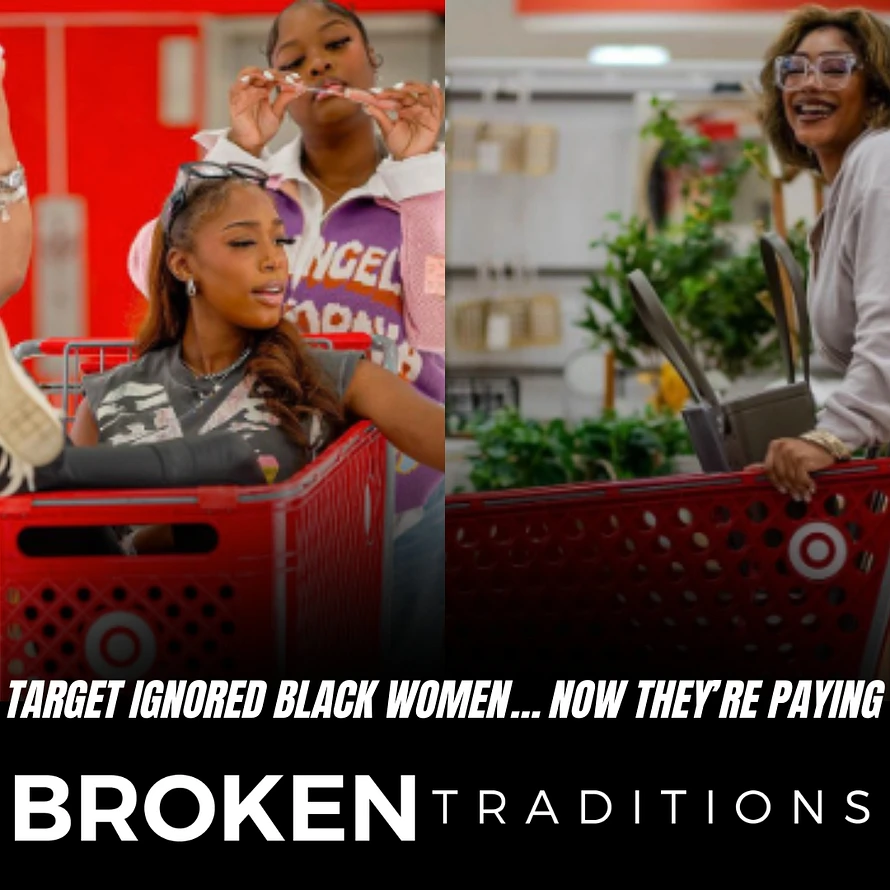
Target is facing yet another backlash, but this time, there’s a bigger question at play: Is the retailer’s stock decline connected to Black women using their economic power?
For years, Black women have been among Target’s most loyal customers—not just for the aesthetic shopping experience but because the brand positioned itself as an inclusive space. Now, after rolling back its Diversity, Equity, and Inclusion (DEI) initiatives, Target may be feeling the financial sting of alienating this key demographic.
Is this a wake-up call for corporations?
Did Target Just Lose Its Most Loyal Customers?
One of the biggest mistakes Target made in this rollback was underestimating the loyalty and spending power of Black women.
The evidence is clear:
There is an Instagram page dedicated to Black women who shop at Target with over 100,000 followers—a strong indicator of their influence as consumers.
On Facebook, a group with over 200,000 members exists solely for Black women to share their Target finds and shopping experiences.
These aren’t just social media communities; they represent a massive consumer base that actively engages with and promotes the Target brand.
Yet, when Target decided to scale back its DEI initiatives, it failed to consider the impact on these very women who have helped sustain the company’s success.
Now, the bigger question is: Are Black women silently pulling their dollars from Target, and is that contributing to the company’s declining stock?
A Page Taken from the Last Target Boycott
This isn’t the first time a Target boycott has had real financial consequences.
In 2023, Target faced a major backlash after it was accused of selling trans-themed clothing to children. The viral boycott led to:
A drop in foot traffic.
Plummeting stock prices.
Target quietly removing certain products from shelves.
That boycott worked because consumers made a clear statement with their wallets.
Fast forward to today, and a different group of consumers—Black women—may be taking a similar approach. If Target’s stock continues to slide, it raises the question: How much of that loss is tied to the silent boycott from Black women?
What the Numbers Say: Is the Boycott Hurting Target’s Stock?
So, is Target’s stock really suffering because of the boycott? Here’s what we know so far:
1️⃣ Stock prices have been declining since the company rolled back its DEI initiatives.
2️⃣ Shareholders are upset and even filing lawsuits against Target for misleading them about the risks of its DEI decisions.
3️⃣ Foot traffic is reportedly down, but the company hasn’t released clear data on whether Black women specifically are spending less.
While there’s no direct confirmation that the boycott from Black women is the sole cause of Target’s stock decline, the timing is hard to ignore.
Could this be the first time we’re seeing a clear financial impact of Black women using their economic power against a corporation?
Why This Boycott Matters
This isn’t just about Target—it’s about a shift in economic awareness.
For years, Black consumers—especially Black women—have underestimated their economic influence. Corporations profit off their loyalty but rarely prioritize their needs. This moment could be a turning point in how brands treat the very customers that keep them afloat.
This latest boycott sends a clear message:
🔴 Loyalty isn’t unconditional. If a company wants continued support, they need to respect the people spending their money.
🔴 Black consumer power is real. If Target—and other brands—think they can quietly roll back diversity efforts without consequences, this boycott is proving otherwise.
🔴 Economic pressure works. The fact that Target’s stock is already declining and shareholders are concerned shows how quickly financial pressure can build.
The Bigger Picture: What Comes Next?
If Black women continue this silent boycott, Target may be forced to make a decision:
✔️ Reverse course and reinstate DEI programs.
✔️ Ignore the backlash and hope it blows over.
✔️ Face long-term financial consequences if their most loyal shoppers don’t return.
This situation isn’t just about Target—it’s about whether this is the moment when Black consumers realize the full extent of their economic power.
If Target’s declining stock is even partly due to this boycott, it could set a new precedent:
💰 Use your dollar as your vote.
💰 Make corporations respect your spending power.
💰 Show that loyalty must be earned—not taken for granted.
Final Thought: Is This a Turning Point?
Boycotts have come and gone, but this one feels different.
The question now is: Will Target learn from this, or will other corporations make the same mistake?
And more importantly—will this be the moment that Black consumers fully step into their economic power?
Let’s talk about it.